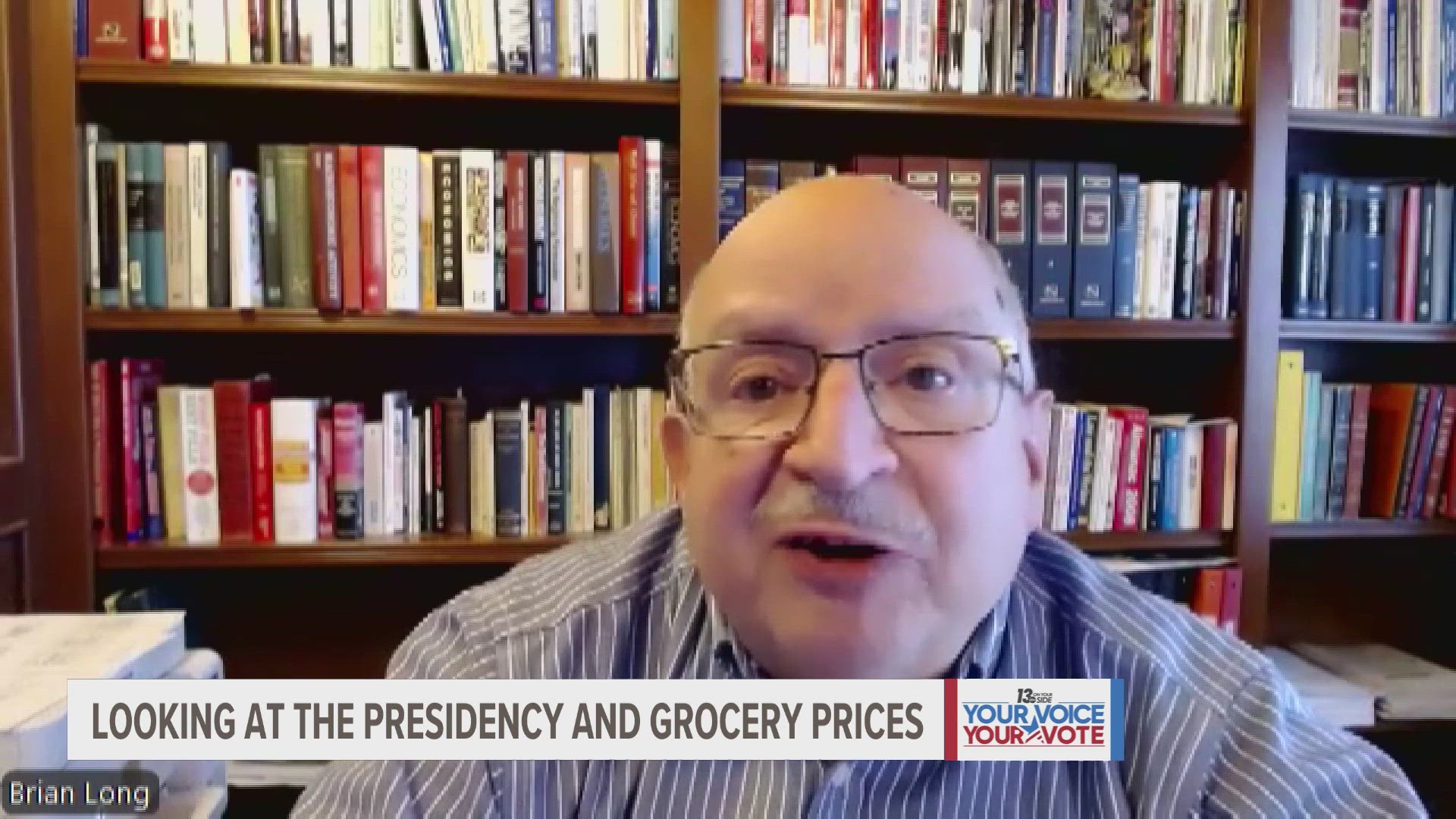GRAND RAPIDS, Mich. — The cost of groceries and food was a key issue through the 2024 election cycle and is continuing to be discussed as President-elect Trump prepares for his second term.
In Trump's recent interview for Times Magazine Person of the Year, Trump said it would be "very difficult" to lower grocery prices. However, he also said he still believes prices will go down according to the Associated Press.
On Friday, Brian Long, Director of Supply Management Research at Grand Valley State University, broke down what impacts the president can have on grocery prices. He explained that the Oval Office is limited in the matter.
"It was Jimmy Carter that said that after his term was over, he found out that the presidential office, i.e. the executive branch, has really very little control in the short run over consumer prices or any other prices," said Long.
He explained that 100 years ago, Americans spent 40 cents per dollar on necessary groceries, and that percentage has gone down dramatically over the years. He said that a growing percentage of Americans' incomes are going towards housing and rent costs instead.
"We pay less for groceries in this country than most any other place in the Western world," said Long. "That's because of our extremely mass-produced and mass-distributed grocery system."
When consumers still notice prices for eggs, milk and other grocery items increasing, Long said the reasons are usually found by looking at the private sector.
"In the case of eggs, it's the problem that we have some diseases circulating right now within the United States, in those industries where they lay eggs for distribution," said Long. "Other costs, of course, relate to the supply chain itself. Part relate to the availability of the raw materials. When the price of corn, when the price of wheat and oats go up, the price of most of our meats go up, but also when the cost of transportation goes up, the price of those commodities go up or go down as the case may be."
Long said the actions of the president occupying the Oval Office have little capability to lower grocery prices in the short-term, but their actions can have long-term effects.
"The President can institute policies that do make a difference as far as first of all, what's imported versus exported, what is grown, what is not grown, subsidies can be added in on different things," said Long.
"There's very little that either candidate can do short term and even long term, as far as the cost of groceries. Most of our reduction in cost has come through the private sector."

